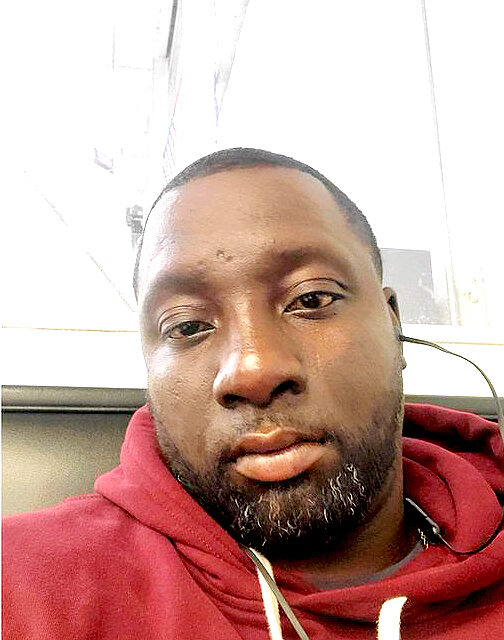By Amy Yurkanin
Reginald Burks doesn’t want to say, “I’m sorry.” Sure, the 39-year-old father and aircraft mechanic said some harsh things to the officer who pulled him over.
But even now, almost six months later, Burks said he had the right to speak his mind.
Court officials in the small town of Ozark in southeast Alabama don’t agree. Ozark Municipal Court Judge Nicholas Bull ordered Burks to apologize in writing to the officer.
Either that or face 10 to 30 days in jail.
“What am I going to do? I’m going to jail,” Burks told AL.com. “I ain’t writing no letter. I can’t do it. I don’t see where it’s legal for him to do that.”
The trouble started with a traffic stop on Dec. 13, 2023. Burks, who lives in nearby Skipperville, was taking his kids to school when police pulled him over for speeding. The officer said his radar gun was broken, so he used cruise control to estimate the speed, Burks said.
“And I told him he was full of crap because there’s no way that he clocked my speed by cruise control,” Burks said.
Things went downhill from there. The officer gave Burks the ticket, and then stood in front of his car, Burks said, forcing the driver to back up and go around him.
“I said, ‘Get your ass out of the way so I can take my kids to school,’” Burks said. “My daughter’s like, ‘Daddy you cursed.’ And I said, ‘I’m sorry boo.’”
One law professor at the University of Alabama said the case might seem trivial, but it raises big questions about judicial power.
In addition to fines and jail time, judges can tell defendants not to contact victims or visit certain businesses, said Jenny Carroll, a professor of criminal law. Some judges have taken that flexibility a bit further, including one in Texas who ordered sex offenders to post signs in their front yards about their criminal convictions. He faced criticism for imposing punishments beyond sentencing guidelines or state law.
In this case, Carroll said threatening Burks with up to 30 days in jail doesn’t seem to fit the crime.
“I think it is one of those judicial orders that is sufficiently questionable that we ought to say, is it really proportional to give a 30-day sentence if he won’t say he’s sorry?” Carroll said.
“That’s a long time for what he allegedly said,” she added. “And my guess is, we could stop most adults on the street, and they would admit that in a moment of frustration, he said something that may be regrettable but doesn’t deserve a 30-day sentence.”
Burks initially received a ticket for speeding, but he was not charged with disorderly conduct, or any other wrongdoing related to his interaction with the officer. He has friends and family who work as police officers, and they advised him not to challenge the ticket, he said.
He arrived in court prepared to plead guilty and pay the fines when he learned the judge wanted him to write an apology for cussing at the officer.
“I was like, I’ll just pay the ticket, but I’m not going to apologize,” Burks said.
Judge Bull declined to comment on the case. The special prosecutor did not respond to requests for comment.
Burks said he has spent most of his life in Skipperville, about 10 miles from Ozark, and built deep roots in the area. He has worked the same job for almost 20 years and said he keeps out of trouble. A review of court records show that Burks has been ticketed for several traffic offenses over the years.
But Burks said he does not believe his speech crossed a legal line. Carroll said Alabama law does prohibit cursing in public, but that Burks should have been charged with that and given due process if the judge intended to punish him for his speech.
Instead, she said the judge appears to be flexing his power to force Burks to say sorry.
“He’s not able to make a choice about whether or not he wants to apologize,” Carroll said. “And he’s not a child, he’s an adult man. He’s not being allowed to exercise his own decision-making process about whether or not his behavior warrants issuing an apology to the officer.”
Burks is set to go back to court on June 4 for a hearing in the case. That is when he expects to go to jail. He has already arranged with his mother and his children’s mother to take care of them in his absence.
His attorney, David Harrison, said in an interview with WTVY that Burks might file a lawsuit in the case. That’s unlikely to happen before his hearing.
“If I did something to offend him or bodily harm him in any way, I would apologize,” Burks said. “But I didn’t do anything to this officer besides curse. And there’s no law saying that I can’t curse or speak my mind.”










